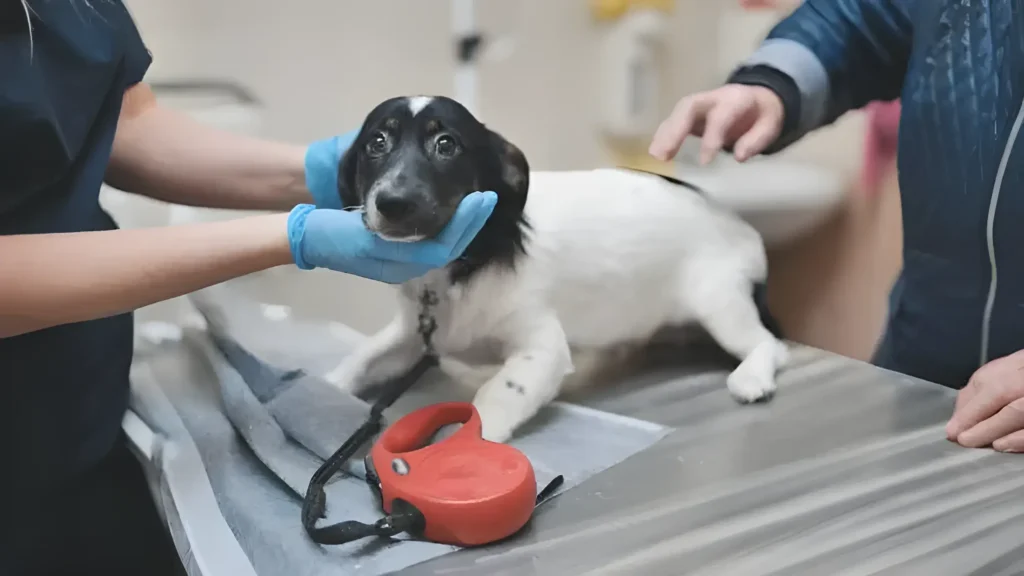If you’re wondering “when to get your female dog fixed,” the best time to spay her is often before her first heat cycle. This typically occurs between 6-12 months of age, though the ideal timing depends on her breed size. Understanding the pros, potential considerations, and your dog’s individual needs will help you make the most informed decision.
Benefits of Spaying
Pregnancy Prevention: Spaying removes the possibility of unexpected puppies, promoting responsible pet ownership and easing the burden on shelters.
Improved Health: Spaying drastically decreases the risk of mammary (breast) tumors, ovarian cancer, and pyometra (a serious uterine infection).
Behavioral Changes: Spaying often reduces roaming in search of a mate and can lessen some types of aggression. Note that it doesn’t address all behavioral problems.
Potential Considerations & Risks
Age & Breed Matter: For large and giant breed dogs, spaying after full growth (around 12-18 months) may be beneficial for orthopedic health.
Slight Increase in Other Health Risks: Studies suggest a possible small increase in the risk of certain cancers and joint disorders in dogs spayed early, especially large breeds.
Anesthesia Risks: As with any surgery, there are minimal risks associated with anesthesia. Reputable veterinarians take precautions to minimize these.
Factors to Discuss with Your Veterinarian
Breed and Size: Your dog’s breed predisposition to certain health conditions will be considered.
Lifestyle: If your dog participates in sports or activities, later spaying might be advised for full development.
Your Ability to Manage a Heat Cycle: Heat cycles in female dogs involve bleeding and behavioral changes.
Alternative Options: Discuss non-surgical options with your vet, if applicable.
The Spaying Procedure and Aftercare

Surgery: Spaying is a routine surgery where the ovaries and uterus are removed under anesthesia.
Recovery: Most dogs recover quickly. Your vet will provide pain medication and instructions for incision and activity management.
The Importance of Spaying
While the timing might need individualization, spaying is a responsible choice for most pet dogs. It contributes to your dog’s long-term health and prevents the strain of unwanted pregnancies.
Myths and Misconceptions About Spaying
Myth: Spaying Makes My Dog Fat.
- Fact: Hormonal changes may slightly affect metabolism, but a healthy diet and exercise will prevent weight gain. Most reputable sources recommend maintaining a healthy weight after spaying, but this doesn’t necessitate a significant diet change.
Myth: Spaying Alters My Dog’s Personality.
- Fact: Spaying primarily affects behaviors linked to heat cycles, not core personality traits. While some anxiousness might arise after surgery due to recovery, spaying can actually improve behavior in some cases by reducing territorial marking or roaming.
Myth: My Dog Needs to Have One Litter First.
- Fact: There’s no health benefit to a dog having a litter. In fact, early spaying significantly reduces the risk of mammary tumors, which become more likely with each heat cycle. Spaying also prevents unwanted pregnancies and contributes to pet population control.
Alternatives to Traditional Spaying
Ovarian Sparing Spay (OSS) or Hysterectomy: These less common options might be suitable in specific cases. An OSS leaves the ovaries intact, while a hysterectomy removes only the uterus. Ask your vet if either is appropriate for your dog.
Financial Considerations
Spaying your dog is an investment in their health and well-being. The cost of spaying can vary depending on your location, veterinarian, and the dog’s size. However, the cost of spaying is generally much lower than the cost of treating health problems that can be prevented by spaying, such as pyometra.
Conclusion
Deciding when to spay your female dog is an important part of pet ownership. Consult your veterinarian to weigh the benefits, risks, and your dog’s unique circumstances to make the best decision for their health and well-being.
The photo featured below the post headline is Credit: hayesphotography/istockphoto
I hope you find this post helpful and informative. If Yes’ feel free to share it with your friends!
Frequently Asked Question
Is spaying expensive?
Costs can vary, but many low-cost clinics offer affordable spay/neuter programs.
Will spaying make my dog gain weight?
Spaying can slightly affect metabolism, but a healthy diet and exercise will manage weight effectively.
Are there alternatives to traditional spaying?
Discuss options like an ovarian-sparing spay or chemical sterilization with your veterinarian.
Does spaying make my dog fat?
Hormonal changes may slightly affect metabolism, but a healthy diet and exercise will prevent weight gain.
Does spaying change my dog’s personality?
Spaying mainly affects behaviors related to heat cycles, not core personality.
Is spaying painful for my dog?
Your veterinarian will provide pain medication, and most dogs recover quickly.
How long does it take for a dog to recover from spaying?
Most dogs bounce back within a few days to a week, although full recovery may take longer.
Can my dog still get pregnant if she’s been spayed?
No, spaying is a permanent sterilization procedure.
What’s the best age to spay a large-breed dog?
Vets sometimes recommend waiting until large and giant breeds have finished growing (around 12-18 months) for optimal health. Your vet can personalize this advice.
What are the long-term benefits of spaying?
Spaying greatly reduces your dog’s risk of mammary cancer, ovarian cancer, and uterine infections, which can lead to a longer, healthier life.
Should I spay my dog before or after her first heat?
Spaying before the first heat provides the most health benefits.
Will spaying my dog stop her from bleeding during heat cycles?
Yes, spaying eliminates heat cycles and bleeding.
Can a spayed female dog still attract male dogs?
While a spayed dog won’t have the same intense scent, some male dogs might still show interest for a short time after the surgery.
Does spaying my dog affect her risk of urinary incontinence?
There might be a slight increase in risk, particularly in spayed large-breed dogs.

